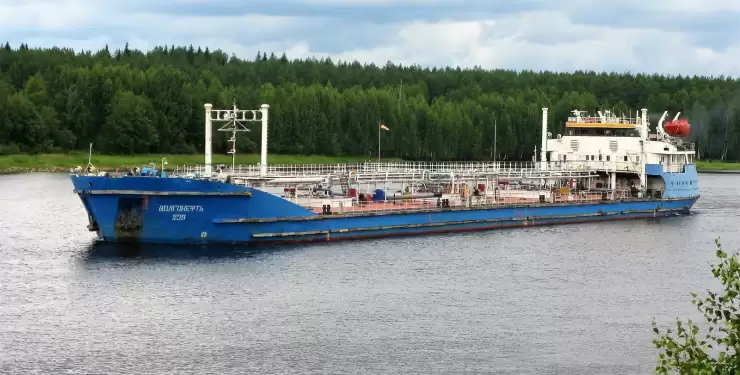
Old Russian tankers threaten the Black Sea with a large-scale ecological disaster
0
Ecologist Vladislav Balinsky says that fuel oil on the sea surface will be carried by the wind to the Russian coast, and the resort town of Anapa in the Krasnodar Territory will suffer the most.
The accident of Russian tankers in the Kerch Strait and the leakage of thousands of tons of fuel oil will lead to the death of seabirds and fish, and the Black Sea ecosystem will suffer from the consequences for decades, said the head of the Green Leaf public organization, ecologist Vladislav Balinsky.
The ecologist recalled that a similar disaster occurred in the Kerch Strait on November 11, 2007 – then the Russian vessel Volgoneft 139 also split in half and sank, spilling fuel oil into the Black Sea.
“Today, the situation is much more serious than in 2007. First, the amount of fuel oil that could potentially get into the sea is much higher — 8.6 thousand tons! Second, now the water temperature is much lower (7-10 degrees Celsius) and the distance to the coast in the direction of the wind is much greater. And this means that most of the fuel oil will end up in the form of clots at the bottom,” Vladyslav Balinsky noted.
According to the expert, these clots, as the temperature rises, will rise to the surface in the form of a rainbow-colored oily film and kill seabirds, fish, and other inhabitants of the ecosystem.
Vladislav Balynsky analyzed the geolocation of the accident and data on the strength and direction of the wind and concluded that the surface fuel oil will float to the Russian coast, namely to the southern side of the Taman Peninsula, towards the Buga Spit and the city of Anapa, Krasnodar Territory.
“It is this part of the sea coast that will probably be in the zone of ecological disaster first of all. As for how the sunken fuel oil will move, where and when it may surface, it is difficult for me to say yet. This is a job for hydrometeorologists and oceanologists for the next 50 years,” the ecologist noted.
Comparing the accident with the 2007 disaster, Vladislav Balynsky suggests that the two sunken tankers with fuel oil will bring potential losses of tens of billions of dollars and irreversible consequences for marine fauna for decades.
“A cursory content analysis of the 2007 disaster indicates the approximate scale of the consequences. Russian sources claim that as a result of the Volgoneft 139 disaster, about three thousand tons of fuel oil were spilled into the sea. Russian officials put the damage from the fuel oil spill at $250 million, although Ukrainian and international environmentalists claimed that the real damage was at least ten times higher! Tens of thousands of birds killed in the Taman Bay, hundreds of tons of destroyed hydrobionts (organisms that live in water. — Ed.), tens of kilometers of coastline polluted with fuel oil on both sides of the Kerch Strait,” the environmental expert wrote.









Leave a Reply